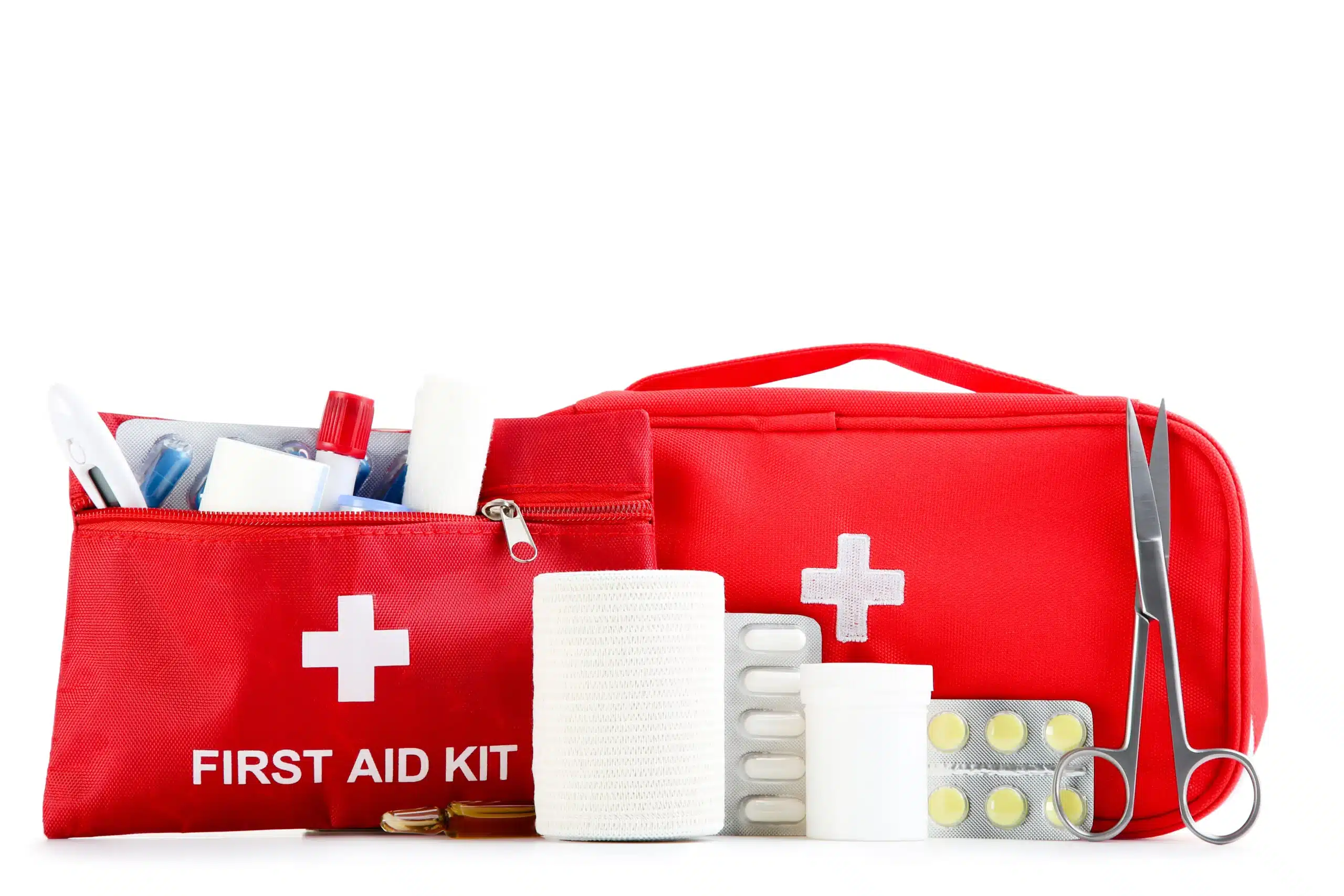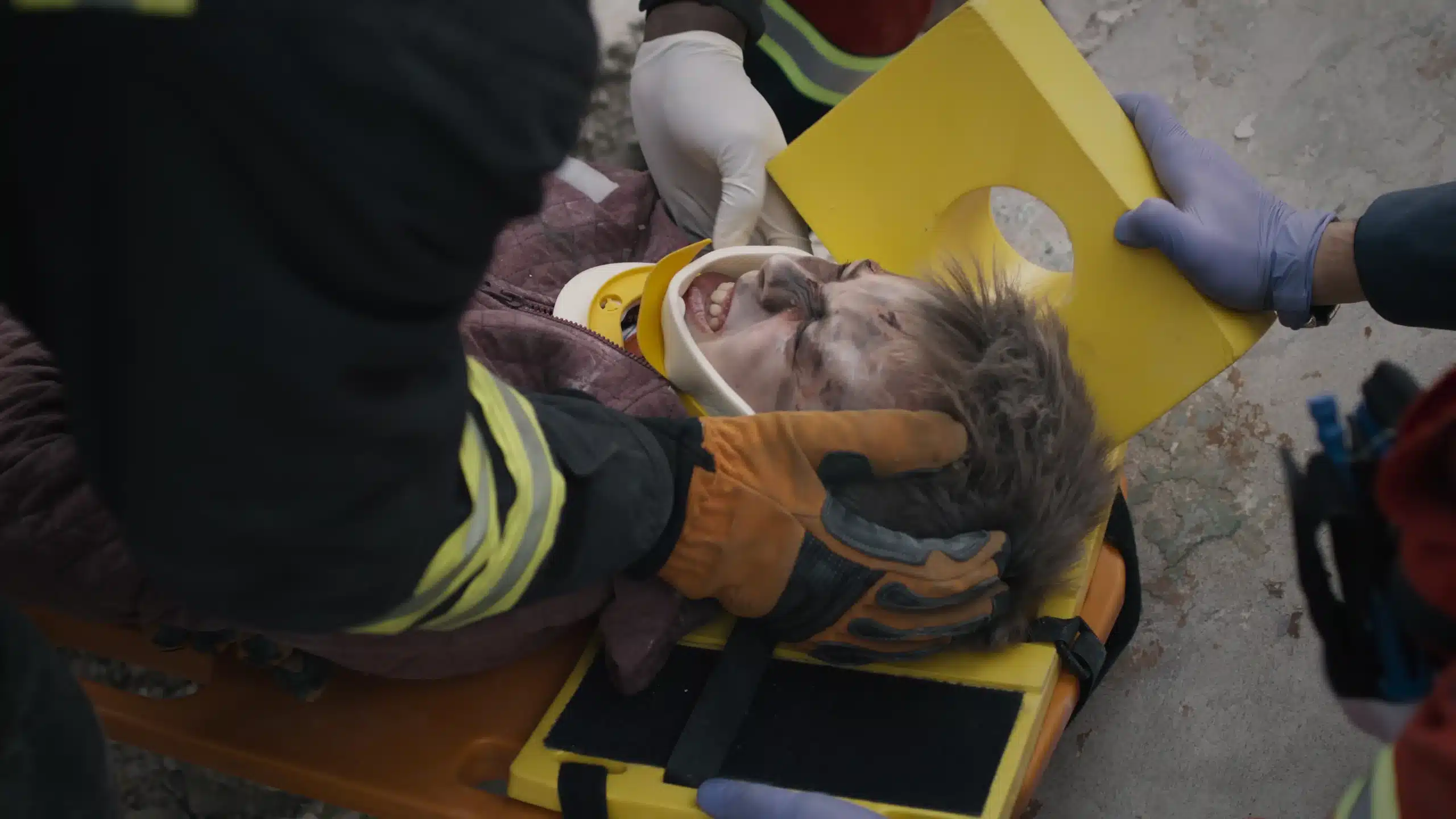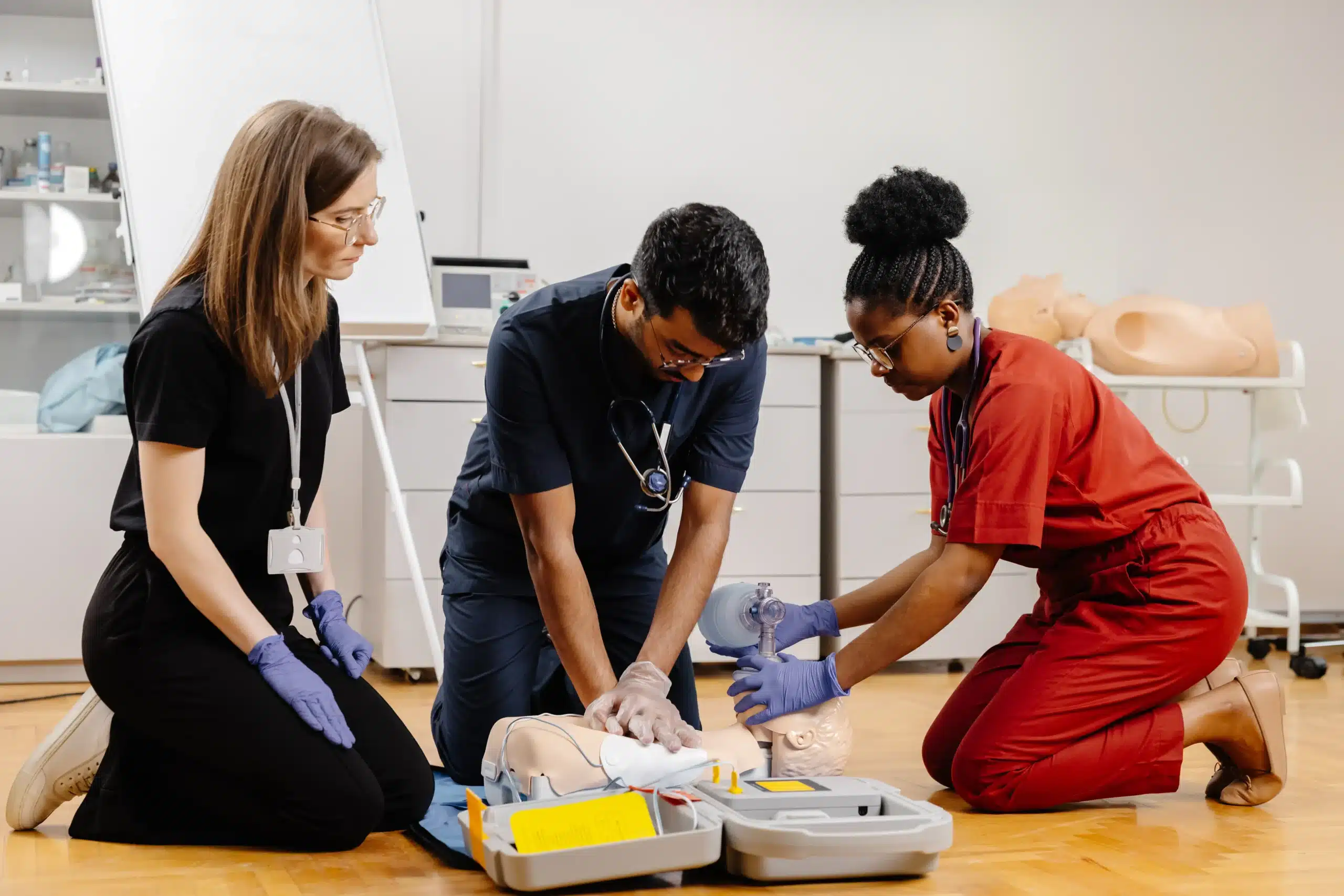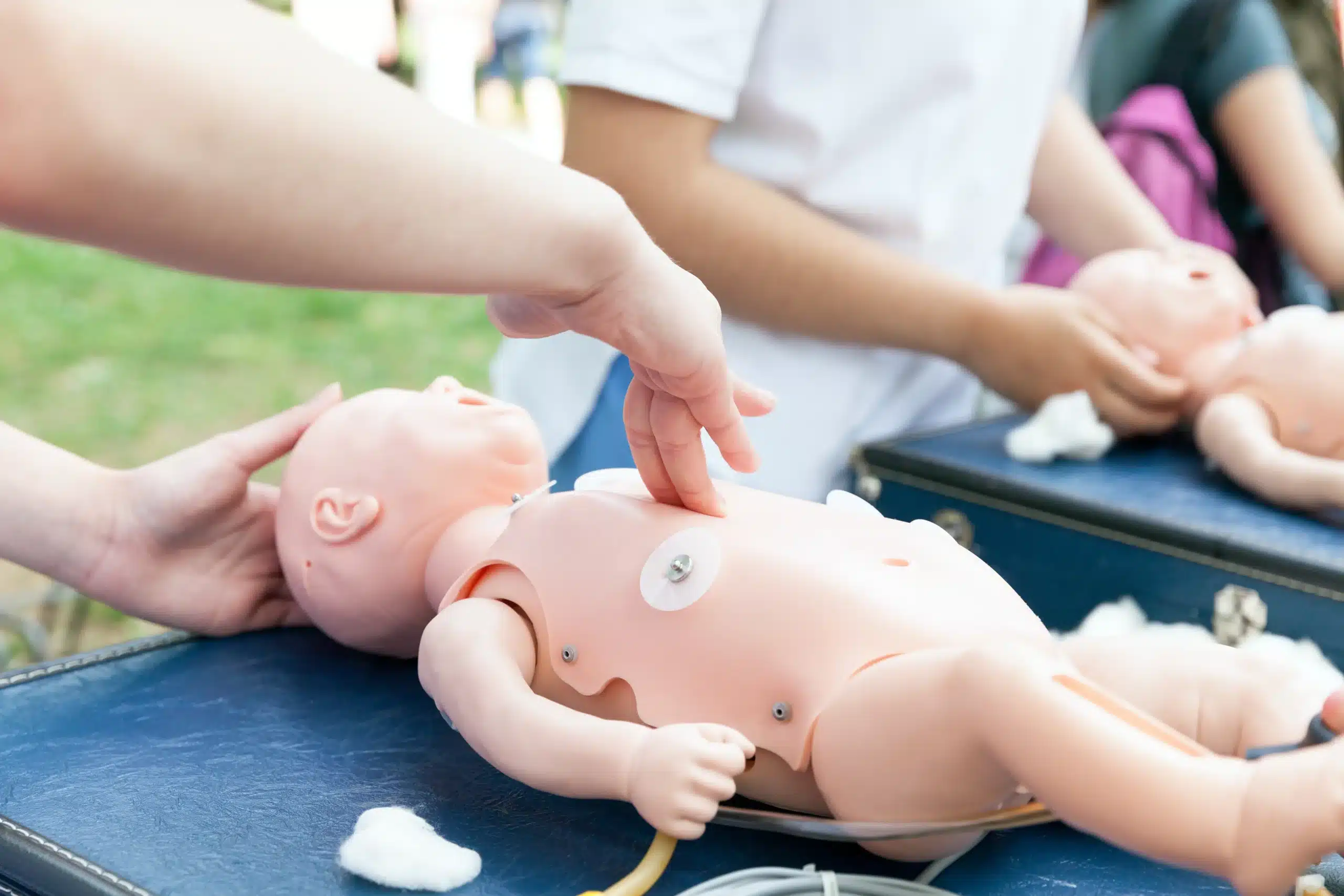Juggling a busy schedule while staying up-to-date with the latest in pediatric emergency care can be challenging. That’s where HeartCode PALS comes in. This blended learning program combines online modules with a hands-on skills session, offering flexibility for healthcare professionals seeking PALS Heartcode in Sacramento. This comprehensive guide explores the benefits of HeartCode PALS, including how it enhances team dynamics and improves pediatric emergency response. We’ll also compare HeartCode PALS with traditional PALS training, discuss costs and prerequisites, and provide resources for finding courses in Sacramento. Whether you’re looking to earn your initial certification or renew your existing credentials, this guide will help you every step of the way.
Key Takeaways
- HeartCode PALS blends online learning with hands-on practice: This flexible format lets you learn the material at your own speed and then demonstrate your skills in person.
- The program adapts to your learning style: HeartCode PALS uses adaptive technology to personalize your learning experience, focusing on areas where you need more practice.
- Gain confidence in managing pediatric emergencies: The course provides the knowledge and skills to effectively respond to critical situations and improve outcomes for young patients.
What is HeartCode PALS?
HeartCode PALS is the American Heart Association (AHA)’s blended learning course for Pediatric Advanced Life Support. It combines online modules with a hands-on skills session, offering flexibility for busy healthcare professionals. This format lets you learn key concepts at your own pace online, then demonstrate your skills in person. The program emphasizes a systematic approach to pediatric assessment, from basic life support and treatment algorithms to effective resuscitation and team dynamics. It aims to give you the confidence to manage pediatric emergencies effectively.
Key components and skills
The PALS Provider Course focuses on improving outcomes for pediatric patients. It prepares healthcare providers to recognize and intervene in respiratory emergencies, shock, and cardiopulmonary arrest. High-performance team dynamics and strong individual skills are emphasized—both crucial for positive patient outcomes. The online modules cover a broad range of essential topics, building a foundation in advanced life support techniques. You’ll learn to assess and stabilize a child in distress, make quick decisions under pressure, and work effectively within a team. This comprehensive training prepares you for diverse pediatric emergencies. Children’s Health offers further details on PALS training.
Adaptive learning features
HeartCode PALS uses adaptive learning technology to create a personalized learning experience. The program adjusts to your pace and existing knowledge, guiding you on the most efficient path to mastery. This personalized approach considers your performance and confidence level, focusing your efforts where you need them most. Because of this adaptive format, the time required to complete the online portion will vary. This flexibility is beneficial for those juggling work and other commitments. Learn more about PALS course options from the AHA.
How HeartCode PALS Benefits Healthcare Providers
As a healthcare provider, you know seconds count in a pediatric emergency. HeartCode PALS equips you with the knowledge and skills to respond effectively, potentially saving young lives. Let’s explore the key benefits this training offers.
Improve Pediatric Emergency Response
HeartCode PALS covers a wide range of critical topics, from recognizing respiratory distress to managing shock and cardiac arrest. The curriculum focuses on a systematic approach to pediatric assessment, ensuring you can quickly evaluate a child’s condition and provide appropriate interventions. This training helps you develop the confidence to act decisively in high-pressure situations, ultimately leading to better patient outcomes.
Enhance Team Dynamics in Critical Situations
Working effectively as a team is essential during pediatric emergencies. HeartCode PALS uses simulations and interactive scenarios to reinforce the principles of teamwork and communication. You’ll learn how to coordinate efforts with other healthcare professionals, ensuring a smooth and efficient response. HeartCode PALS training reinforces these crucial team dynamics concepts, ultimately leading to better communication and faster, more effective treatment. The American Heart Association also emphasizes how strong team dynamics are crucial for successful outcomes in these critical situations.
HeartCode PALS vs. Traditional PALS: Key Differences
Blended Learning Flexibility
HeartCode PALS offers a blended learning approach, combining online coursework with an in-person skills session. This hybrid format provides flexibility for busy healthcare professionals. You can work through the online modules at your own pace, fitting them around your schedule. This allows you to review material as needed and solidify your understanding of the concepts before demonstrating your skills in person. Traditional PALS courses, conversely, typically involve a set schedule of classroom lectures and demonstrations, which may not suit everyone’s availability. HeartCode PALS offers a convenient alternative, allowing you to complete the cognitive portion of the course wherever and whenever works for you. This also allows for more personalized attention during the in-person skills session, as instructors can focus on addressing individual questions and refining techniques.
Personalized Learning
HeartCode PALS uses an adaptive learning algorithm to tailor the online learning experience to your individual needs. The program assesses your performance and confidence levels throughout the modules, adjusting the content and difficulty accordingly. This personalized learning path ensures you focus on areas where you need the most practice and reinforces your understanding of key concepts. Traditional PALS courses often follow a standardized curriculum, which may not address each participant’s specific learning needs. With HeartCode PALS, you’ll receive targeted instruction and feedback, helping you master the material efficiently. The online modules cover a comprehensive range of topics, preparing you to provide effective advanced life support for pediatric patients. This personalized approach enhances your learning experience and builds your confidence in applying your PALS skills in real-world scenarios.
Find HeartCode PALS Courses in Sacramento
Finding the right HeartCode PALS course in Sacramento is crucial for healthcare providers looking to refine their pediatric emergency care skills. Here are a few options:
Safety Training Seminars
Safety Training Seminars offers various CPR and first-aid classes, including the American Heart Association’s Basic Life Support (BLS), Advanced Cardiovascular Life Support (ACLS), and Pediatric Advanced Life Support (PALS) courses in Sacramento, CA. They focus on equipping healthcare professionals with essential life-saving skills. Explore their course schedule for more information. While they may not specifically list “HeartCode PALS,” contacting them directly can clarify their offerings and how they align with the HeartCode PALS curriculum.
No Stress EMS
No Stress EMS provides PALS certification in Sacramento, concentrating on advanced techniques for managing pediatric emergencies. Their training prepares participants to handle critical situations involving children. Visit their website to learn more about their PALS courses. Again, reaching out to them directly can confirm whether they offer a HeartCode PALS format.
Hopewell CPR
Hopewell CPR offers the HeartCode PALS course, combining online learning with hands-on skills testing. This blended learning style offers flexibility for busy professionals. Their HeartCode PALS course is designed for healthcare professionals in the Sacramento area.
AdventHealth Training Center
AdventHealth Training Center also provides a HeartCode PALS course with online modules and in-person skills testing. Participants gain access to online materials within 24-48 hours of enrolling. Explore their HeartCode PALS program for details.
Costs and Prerequisites
Before you sign up for a HeartCode PALS course, it’s helpful to understand the associated costs and any prerequisites. Planning ahead ensures a smooth and successful learning experience.
Course Fees and Pricing
HeartCode PALS course fees in Sacramento vary based on the training center and whether you’re taking the initial course or a renewal course. For example, at Safety Training Seminars, our PALS courses are competitively priced. We also offer a low price guarantee, so you can be confident you’re getting the best value. Other providers may offer different pricing structures. It’s always a good idea to check with the specific training center for their most up-to-date pricing.
Required Certifications and Materials
Generally, there aren’t any required certifications to take a HeartCode PALS course. However, having a current BLS CPR certification is highly recommended, as PALS builds upon those foundational skills. You’ll also need the official American Heart Association (AHA) PALS Provider Manual. You can typically purchase this textbook from the AHA, or some training centers may include it in the course fee. Be sure to confirm this with your chosen provider. Additionally, most training centers require a pre-test before the course. This pre-test helps you review key concepts and ensures you’re prepared for the hands-on skills session.
The HeartCode PALS Learning Process
HeartCode PALS blends online learning with in-person skills practice. This flexible, structured approach makes it easier to earn your PALS certification. Here’s how it works:
Online Modules: Self-Paced Learning
The HeartCode PALS program starts with online modules covering a range of essential pediatric advanced life support topics. This self-paced format gives you the flexibility to learn on your own time. You’ll receive your HeartCode PALS online key from [email protected] usually within 24 hours of registering, providing quick access to the online materials and allowing you to begin right away.
Hands-on Skills Session and Testing
Once you’ve finished the online modules, you’ll attend an in-person skills session. This hands-on component is essential for reinforcing your online learning and making sure you can apply your new knowledge. The session usually takes about five hours with breaks, or a little less without. You’ll demonstrate your skills in child and infant basic life support (BLS), and you’ll likely be tested on case scenarios. This hands-on training is key to ensuring you’re fully prepared to respond to pediatric emergencies.
Certification and Continuing Education
After completing your HeartCode PALS training, you’ll want to ensure your certification is in order. This section covers what you need to know about receiving and maintaining your PALS credentials.
PALS Provider eCard
Once you finish the online modules and the hands-on skills session, you’ll receive your PALS Provider eCard. This digital certification from the American Heart Association (AHA) is valid for two years. You should receive your eCard via email from [email protected] within 24 hours of course completion, giving you quick access to your certification for professional purposes.
CEU/CEH Opportunities
Besides your PALS Provider eCard, the HeartCode PALS course offers continuing education units (CEUs) or continuing education hours (CEHs). The AHA awards these credits after you complete the online portion. Earning these credits can be valuable for maintaining professional licenses or certifications, demonstrating your commitment to ongoing learning in pediatric advanced life support. Learn more about the benefits of continuing education for healthcare providers. These CEUs/CEHs can contribute to fulfilling requirements for license renewal or other professional development goals.
Maintain Your HeartCode PALS Certification
Keeping your HeartCode PALS certification current is crucial for providing the best possible care to young patients. This section covers what you need to know about renewing your certification and staying up-to-date with the latest in pediatric life support.
Renewal Requirements and Process
Your HeartCode PALS certification is valid for two years. To maintain your credentials, complete a PALS renewal course before it expires. This involves passing the required assessments and staying informed about the latest pediatric emergency protocols. Think of it like renewing your driver’s license—you demonstrate continued competency to ensure you’re prepared for any situation.
Ongoing Pediatric Care Education
The PALS Provider Course focuses on improving outcomes for pediatric patients. It equips healthcare providers with the skills to recognize and respond effectively in critical situations like respiratory emergencies, shock, and cardiopulmonary arrest. The course emphasizes high-performance team dynamics and high-quality individual skills, both essential for successful pediatric advanced life support. The online modules of HeartCode PALS cover a wide range of critical topics, ensuring you’re well-prepared to provide the best possible care. You can explore additional PALS resources to deepen your understanding of pediatric advanced life support. Staying current with pediatric care education isn’t just about meeting requirements; it’s about having the knowledge and skills to make a real difference. A HeartCode PALS guide can offer valuable insights into the program.
Succeed in HeartCode PALS
Maximize Online Learning
HeartCode PALS uses adaptive learning technology, meaning the program adjusts to your pace and learning style. As you work through the online modules, the system assesses your answers and confidence levels. This personalized approach helps you focus on areas where you need more practice and quickly move through concepts you’ve already mastered. This creates the most efficient path to PALS mastery. The online portion covers essential topics, giving you a solid foundation before the hands-on portion of the course. The American Heart Association provides further details on the PALS course options.
Prepare for the Hands-on Skills Session
After completing the online modules, you’ll participate in a hands-on skills session. This session focuses on practical application and reinforces the knowledge you gained online. The in-person skills session typically lasts about five hours with breaks. You’ll be evaluated on your BLS skills for both children and infants. The skills session also includes learning stations covering respiratory issues, rhythm disturbances, and vascular access. While practicing these case scenarios is required, testing on them is optional. Review the HeartCode PALS Guidelines for more information on what to expect. Come prepared to actively participate and apply your knowledge in a simulated clinical environment.
HeartCode PALS FAQs
Address Common Concerns
One of the biggest advantages of HeartCode PALS is its personalized learning experience. The program uses an adaptive algorithm to create the most efficient learning path for each student, based on their answers and confidence levels. This means you focus on areas where you need the most practice. You’ll receive your HeartCode PALS online key by email from [email protected] within 24 hours of placing your order. This lets you start the online portion right away. During the hands-on skills session, you’ll demonstrate your child and infant Basic Life Support (BLS) skills. You’ll also participate in learning stations covering respiratory issues, rhythm disturbances, and vascular access, though testing on these case scenarios is optional.
Additional Resources
HeartCode PALS offers a blended learning approach, combining online modules with hands-on training. This flexible format lets you learn at your own pace and then practice your skills in person. The online modules cover a wide range of topics to prepare you for pediatric advanced life support situations. To maintain your PALS certification, you’ll need to complete a renewal course, pass the required assessments, and stay up-to-date on the latest pediatric emergency protocols. This ensures you’re always prepared to provide the best possible care.
Related Articles
- PALS Classes in Sacramento, CA – Sacramento CPR Classes
- BLS Classes in Sacramento: Your Complete Guide – Sacramento CPR Classes
- CPR Certification in Sacramento: Your Guide – Sacramento CPR Classes
- CPR Classes in Sacramento: The Complete Guide – Sacramento CPR Classes
- First Aid Training Sacramento: A Comprehensive Guide – Sacramento CPR Classes
Frequently Asked Questions
What if I don’t have time for a traditional PALS course?
HeartCode PALS offers a flexible, blended learning format. You can complete the online modules at your own pace, anytime, anywhere. This makes it much easier to fit the training into a busy schedule. You then schedule the shorter, in-person skills session when it’s convenient for you.
Is HeartCode PALS as comprehensive as a traditional PALS course?
Absolutely. HeartCode PALS covers the same curriculum and meets the same standards as a traditional PALS course. The blended learning format simply offers a more convenient and personalized way to learn the material. You’ll still receive thorough training in all the essential PALS skills and knowledge.
How long does it take to complete the HeartCode PALS course?
The online portion is self-paced, so the time it takes varies depending on your learning style and how much time you can dedicate each day. The in-person skills session and testing usually take a few hours to complete.
What if I fail the skills test?
The instructors are there to support you. They’ll provide guidance and feedback to help you improve your skills. If you don’t pass the skills test on the first try, you’ll have the opportunity to practice and retest.
How do I renew my HeartCode PALS certification after two years?
You’ll need to take a PALS renewal course before your current certification expires. Check with your training center or the AHA for renewal course options in your area. They can guide you through the process and help you maintain your PALS credentials.





